A raw look at how your nervous system might be writing checks your vision can’t cash.
Let’s Get One Thing Straight: CSR Isn’t Just an Eye Issue.
If you’ve been diagnosed with Central Serous Retinopathy (CSR) and you’re like me — driven, ambitious, constantly pushing — there’s a good chance your body didn’t just break down.
It finally said “Enough.”
Most of the medical community will tell you CSR is stress-related.
But they won’t always tell you what that really means.
Or how deep that stress runs in someone wired to push harder no matter the cost.
So let’s talk about cortisol, burnout, and the Type A recovery that nobody prepares you for.
What Is CSR Really Responding To?
CSR happens when fluid builds up under the retina, causing visual distortion, blurring, and even blind spots. But the trigger?
Cortisol.
This isn’t just about having “a rough week.”
This is about living in stress.
Your body stuck in sympathetic overdrive — fight-or-flight mode — without relief.
And cortisol, your primary stress hormone, running the show long past its expiration date.
The Type A Nervous System: Built to Win, Wired to Break
Let’s not sugarcoat it:
- You might be addicted to adrenaline.
- You might mistake pressure for purpose.
- You might only feel “right” when you’re sprinting through life.
But here’s the problem:
The nervous system doesn’t care about your ambition.
It cares about safety — and it will shut you down to protect you.
For Type A personalities, that shutdown often isn’t emotional. It’s physical.
Enter CSR.
Cortisol Is a Slow Killer of Vision
High cortisol doesn’t just spike and leave.
It rewires your rhythms:
- Sleep gets wrecked. You stop entering deep or REM sleep — both critical for brain and eye recovery.
- Your gut suffers. Inflammation creeps in, digestion weakens, and absorption of key nutrients for eye health (like zinc, A, D, and omega-3s) gets compromised.
- Vision becomes the canary in the coal mine.
The eye — especially the retina — is sensitive to hormonal disruption. When cortisol floods the system long enough, it compromises the retinal pigment epithelium, allowing fluid to leak and blur your vision.
This isn’t random.
It’s a message. And if you don’t listen to it, it’ll scream louder.
Burnout: Not Just Exhaustion — Identity Collapse
Burnout isn’t just feeling tired.
It’s losing access to yourself.
- You’re forgetful.
- You’re impatient.
- You’re angry at the people you love.
- And you can’t find joy in things that used to light you up.
You don’t just “need a break.”
You need to rebuild the entire framework you’ve been operating from.
For those of us with CSR, it often takes our vision literally leaving us to realize the path we were sprinting down was headed for a cliff.
My CSR Story Was a Stress Story in Disguise
When I first noticed symptoms — blurred vision in one eye — I thought it was fatigue.
When it didn’t go away, I panicked.
When I was diagnosed, I went into optimization mode: supplements, eye drops, clean eating.
But the root cause wasn’t what I ate.
It was how I lived.
- High-stakes meetings.
- No real sleep.
- Pre-workouts just to feel “on.”
- Drinking to shut down.
- No off-switch. Ever.
I was trying to fix a stress disease without fixing my stress identity.
What Recovery Actually Looked Like
It wasn’t glamorous.
I didn’t “biohack” my way out of it.
I had to slow down. And for someone like me, that felt like death.
But here’s what helped:
1. Nervous System Work First
Not just mindset — nervous system.
- Breathwork, especially in the evenings
- Magnesium glycinate (game changer)
- 3:00 PM calm breaks instead of 9:00 PM crashes
2. Routine Rewiring
- Morning: sunlight, stillness, bulletproof coffee
- Afternoon: one major task, then pause
- Evening: movement, not punishment
3. Cortisol Reset Foods
- Electrolytes and minerals
- Slow proteins like eggs and beef
- Ditch the “always fasting” mentality — feed the system when needed
4. Redefining Success
I had to learn to value clarity over hustle.
Peace over productivity.
And presence over perfection.
CSR didn’t just force me to heal my eyes.
It forced me to see my life clearly for the first time.
Final Word: CSR Isn’t Just a Diagnosis — It’s a Wake-Up Call
If you’re dealing with CSR, you might be treating it like a vision problem.
But it’s not just your eyes.
It’s your system. Your wiring. Your rhythm. Your relationship with stress.
And if you’re Type A like me — ambitious, intense, high output — then healing isn’t just about doing more.
It’s about doing less — on purpose.
Your vision is trying to show you something.
The question is — are you finally ready to look?
Want more?
Drop a comment if this hit home.
Or explore the [CSR symptom tracker] I created to start noticing your own stress patterns.
You can’t heal what you don’t track.
And you don’t have to do this alone.



